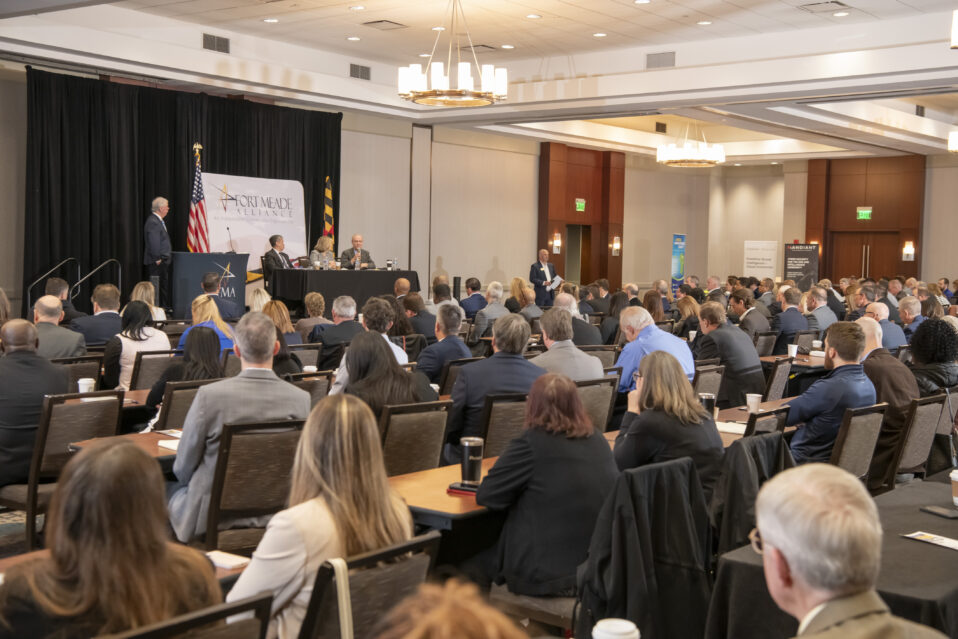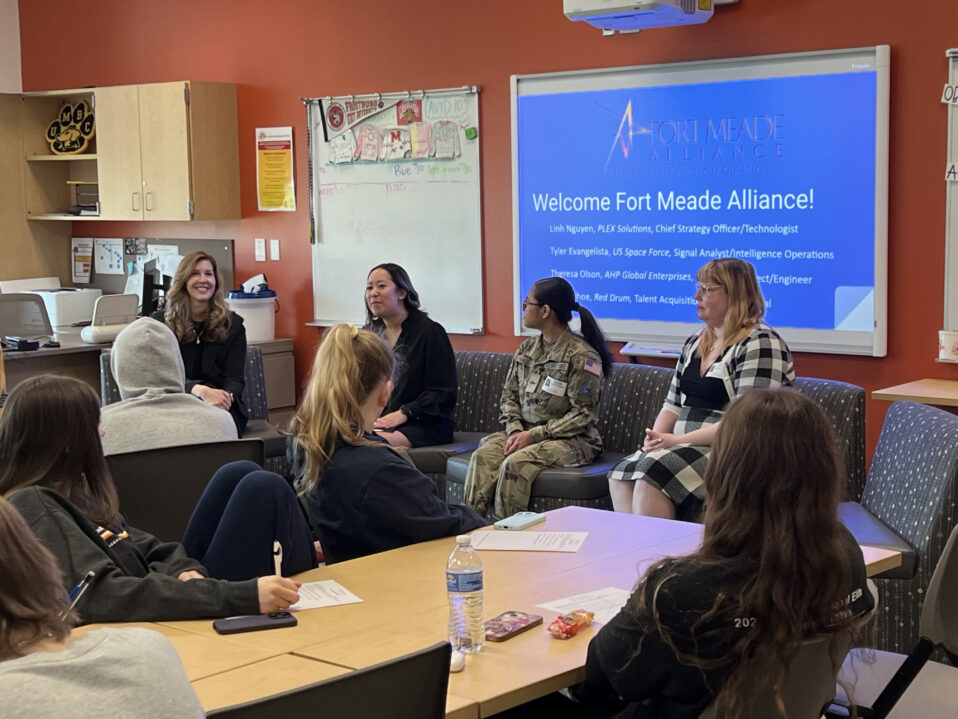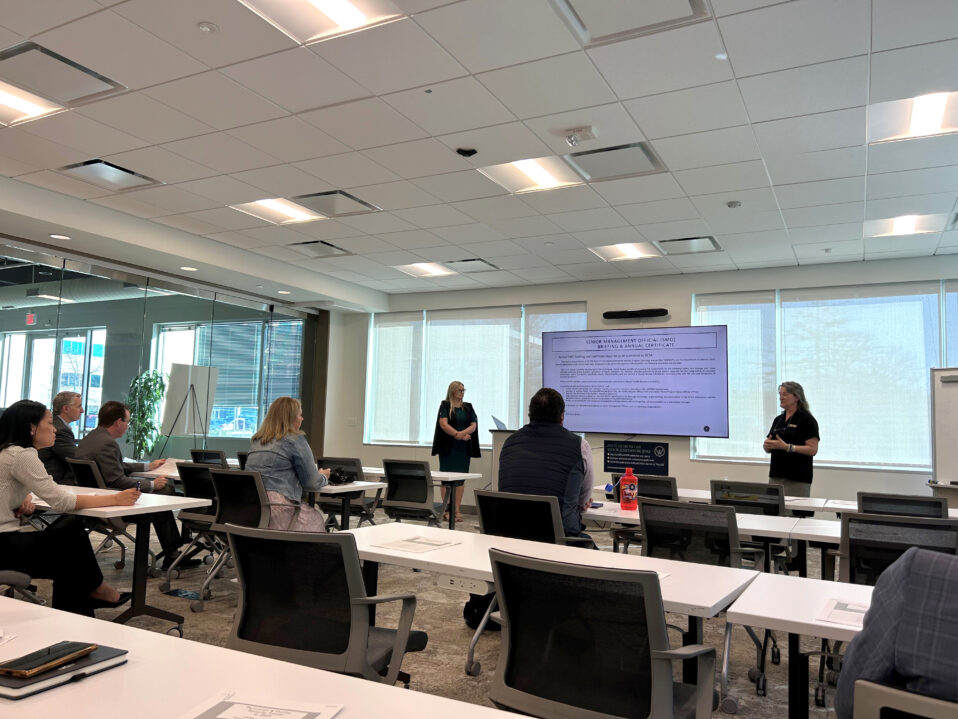 From hack-a-thons inside a new cyber range to hands-on projects with industry experts to science activities for elementary students, Fort Meade schools will soon offer expanded STEM and cyber education thanks to two new grants.
From hack-a-thons inside a new cyber range to hands-on projects with industry experts to science activities for elementary students, Fort Meade schools will soon offer expanded STEM and cyber education thanks to two new grants.
A $1 million grant from Department of Defense Education Activity (DoDEA) will enable Meade High School, McArthur Middle School and four elementary schools serving Fort Meade to begin offering expanded computer science and cyber training, redesigned mathematics classes, and new, extra-curricular STEM activities, beginning this school year.
“With this new initiative, Fort Meade schools are going to see cyber course work threaded through K to 12,” said Tim O’Ferrall, FMA General Manager. “Those expanded offerings will include immersive opportunities in STEM, cyber and IT coursework, including ‘passion courses’ where students will be able to focus on a particular type of coding or other subject they are passionate about.”
The initiative will also provide students with different kinds of courses that clearly show the relevance of conceptual subjects, such as mathematics, to practical applications, said Maureen McMahon, Deputy Superintendent of Anne Arundel County Public Schools (AACPS). “One example is we are running an algebra class for ninth graders that is split between 45 minutes of algebra followed by 45 minutes of computer science. The goal is to help students apply their complex, conceptual understanding of algebra to computer science, which is more concrete. When you make those links, students realize that math is not just book work. It has applications to the world and to jobs they might want in the future.”
The initiative includes funds to help teachers gain more STEM training so that “they are ready to offer students rich learning opportunities,” McMahon said. However, the initiative will also bring STEM professionals into classrooms and labs to share their expertise through lessons, talks and hands-on activities.
At Meade High School, staff and industry volunteers are also preparing to establish the Meade Cyber Lab. Funded through a $381,000 grant from the Anne Arundel Lottery Facility Local Development Council, the facility will be outfitted with servers and computers to create a sandbox environment where students can complete computer science and cyber security classes including AP classes, earn industry certifications (such as Security Plus, Network Plus and A Plus), learn how to set up computer/network hardware, safely explore ethical hacking, work on simulations of security breaches or other cyber events, and compete against other students in cyber challenges.
Although the Cyber Lab will be able to serve off-site students, AACPS strategically located it at Meade High to dovetail with the school’s Homeland Security Program and to encourage participation by the wealth by cyber professionals working nearby.
“There are not a lot of teachers today who have a cyber background so having industry experts participate in cyber range activities is so important to keeping the cyber security curriculum up to date,” said Penny Cantwell, Chair of FMA’s Education and Workforce Development Committee. “Our hope is that industry people will have students work on real-world, hands-on projects in the lab and that could count as experience when they apply for jobs in the future.”
FMA is currently assembling an advisory committee, lead by former Garrison Commander Kenneth McCreedy, to help develop curriculum and extra-curricular activities for the Cyber Lab, as well as identify potential speakers, mentors and related internship opportunities.
“I am excited that the Fort Meade Alliance has been critical in leading the efforts not only to acquire this grant, but to help see this project through to fruition,” McMahon said.
Equipping Fort Meade region schools with top-quality STEM and cyber education opportunities is essential to helping Fort Meade commands and agencies complete their missions.
In addition to cultivating the STEM workforce of the future, “these educational initiatives are important to recruiting the best talent to Fort Meade today,” O’Ferrall said. “Those talented people want a good environment and great schools for their children. What is really significant about the cyber range and the expanded cyber curriculum is it is reflective of what we have heard parents say they want their children to learn in school. These are cyber professionals who work on the most complicated math and science cyber challenges. They know what kind of education it takes to be cyber ready.”



